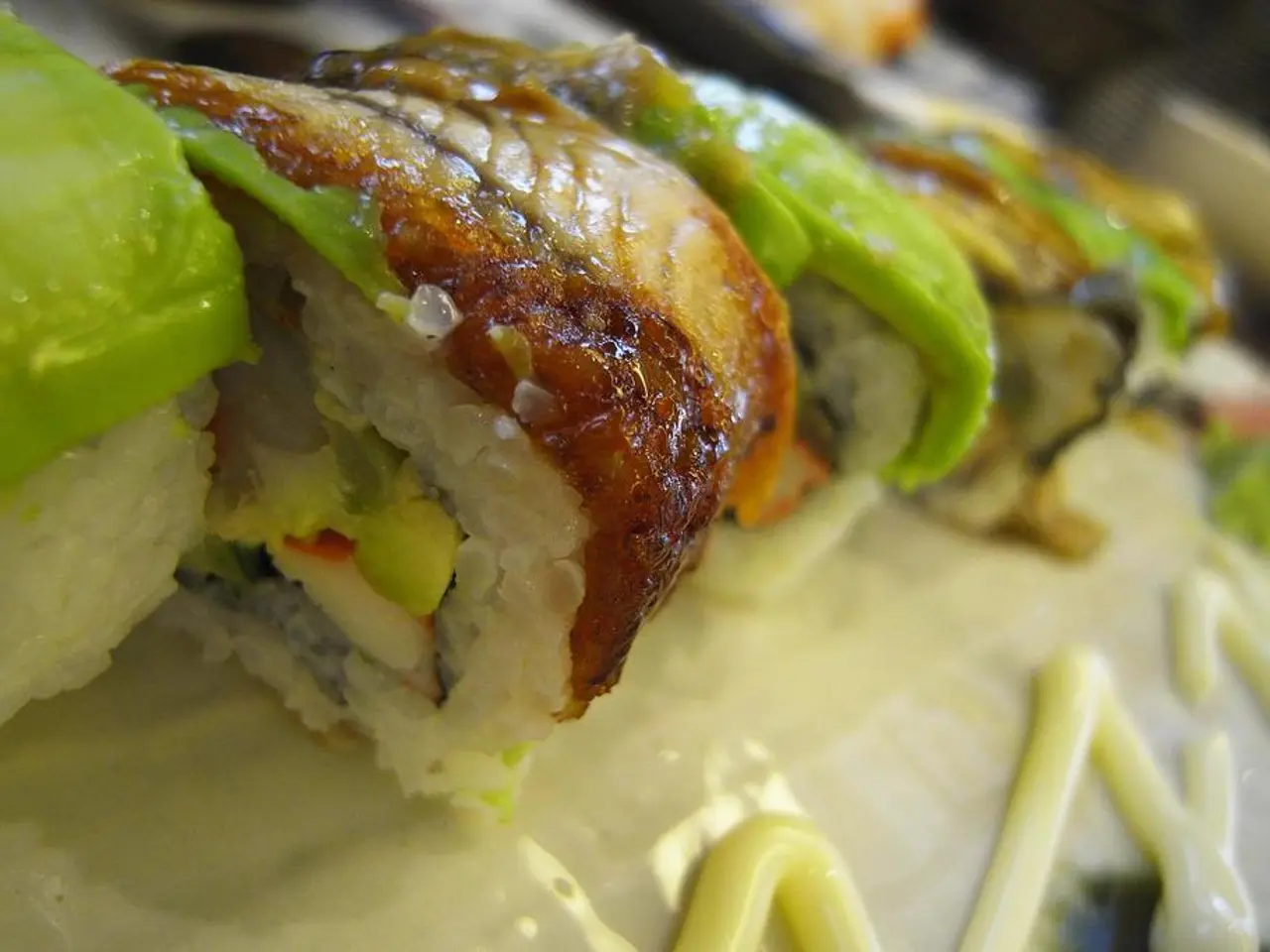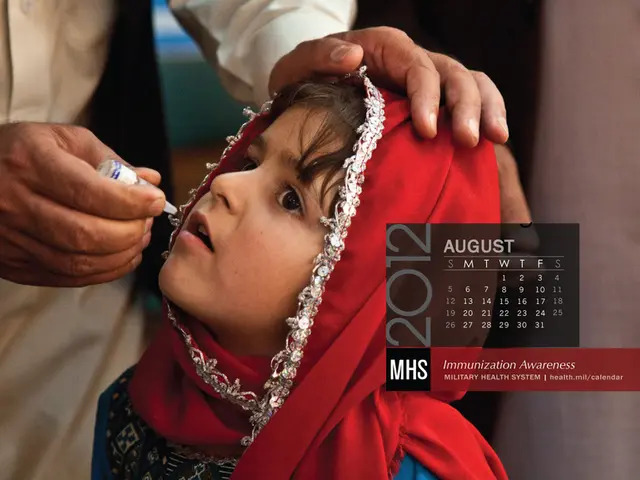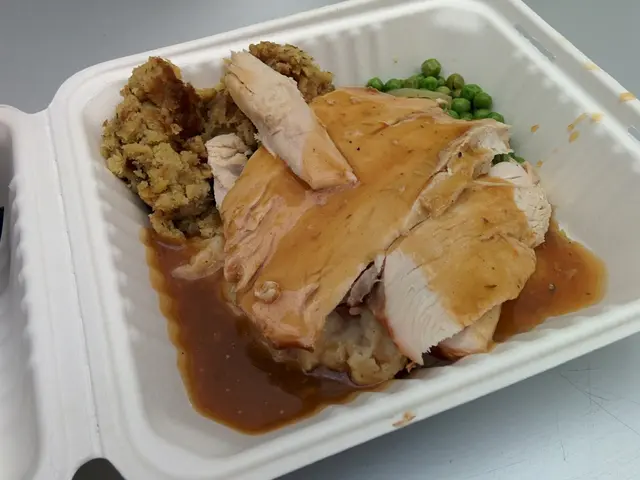Dietary Guidelines for Liver Cancer: Consumption, Avoidance, and Restriction of Certain Foods
Managing and Reducing the Risk of Liver Cancer: Recommended Dietary Guidelines
Liver cancer is a serious health concern, and adopting a balanced diet can play a crucial role in managing the disease and reducing the risk of its development. Here are some dietary guidelines to support liver function, boost immunity, and minimize exposure to harmful substances.
Recommended Foods:
- Fruits and vegetables: Green vegetables and fresh fruits rich in fiber and vitamins A and E, such as broccoli, mustard greens, oranges, and grapefruits, are beneficial for reducing fat accumulation in the liver and providing antioxidants.
- Whole grains: Foods like brown rice, oatmeal, quinoa, and whole-wheat bread provide steady energy and fiber for healthy digestion and recovery during treatment.
- Lean proteins: Poultry (without skin), eggs, soybeans, fish, and seafood are ideal for maintaining muscle mass and health. Fatty fish like salmon and trout, rich in omega-3 fatty acids, may help slow liver disease progression.
- Healthy fats: Sources such as olive oil, nuts, and omega-3 rich fish help improve liver health by reducing bad cholesterol and inflammation.
- Low-fat or fat-free dairy products: Yogurt and cheese, preferably pasteurized, provide protein and calcium without harmful pathogens, supporting immunity during treatment.
- Coffee: Both caffeinated and decaffeinated coffee appear beneficial for liver health due to their antioxidant and anti-inflammatory properties, but should be consumed without excess sugar.
Foods to Avoid:
- Processed and red meats: Linked to increased cancer risk, consumption should be limited or replaced with legumes and plant-based proteins.
- Greasy, fried, and high-fat foods: These are hard to digest, can cause discomfort, and may impair immune function during treatment.
- Raw or undercooked foods: Including raw fish (e.g., sashimi, sushi), soft-cooked eggs, and unwashed fruits and vegetables; these pose infection risks due to immunosuppression during cancer treatment.
- Unpasteurized dairy products: May contain harmful bacteria like Salmonella or Listeria, which are dangerous for immunocompromised patients.
- Sugary and highly processed foods: Sodas, sweets, and refined grains contribute to unhealthy weight gain and may increase cancer risk; minimizing added sugars supports overall health.
- Foods with carcinogens: Avoid charred or burnt grilled meats that may contain cancer-causing chemicals.
Additional considerations:
- Preparing foods by grilling, steaming, or baking rather than frying reduces added fats and toxins.
- Drinking certain liver-supportive teas (such as artichoke and lotus leaf) may help reduce liver fat, but caution is advised as some detox teas can be harmful.
- Consulting a dietitian is beneficial to tailor nutrition plans during liver cancer treatment for optimal strength, recovery, and infection prevention.
These dietary guidelines aim to support liver function, boost immunity, reduce inflammation, and minimize exposure to harmful substances for those at risk of or undergoing treatment for liver cancer. High red meat intake may also increase the risk of mortality for those already living with liver cancer. After surgery for liver cancer, it is important to eat well-balanced and healthy meals that include foods with lower CLD mortality, such as lettuce, sweet potatoes, cruciferous vegetables (broccoli, cabbage, cauliflower), legumes, and carrots.
It is essential to remember that while a balanced diet can support overall health, no diet can replace professional medical treatment. Diets such as the alkaline diet, Gerson therapy, ketogenic diet, and intermittent fasting, which claim to treat or "cure" cancer, lack scientific evidence to support their effectiveness. Adequate nutritional support can be essential for managing Hepatocellular carcinoma (HCC), the form of primary liver cancer in adults often following the development of cirrhosis.
Certain foods, such as aflatoxins found in some foods, have a potential association with an increased risk of liver cancer. Aflatoxins can transmit to livestock through feed, resulting in the contamination of meat and other animal products, such as eggs and dairy. Research suggests that consumption of whole grains has an inverse relationship with liver cancer and lower liver cancer mortality rates.
In conclusion, adhering to these dietary guidelines can help manage symptoms during treatment, reduce mortality risk, and potentially prevent the development of liver cancer. However, situations vary from person to person, and a person should always seek individual advice from a medical professional.
Read also:
- Apparition's Significance and its Delivered Messages - as discussed by Sensenmann
- Explored the Popular Health Assessment with a Queue of 100,000 Aspiring Participants - Here's My Unadulterated Opinion
- Hearing impairment condition: Recognizing symptoms and management approaches
- Exploring Recurring Actions in Mature Individuals: An Analysis of Persistent Actions in Adults' Daily Lives








